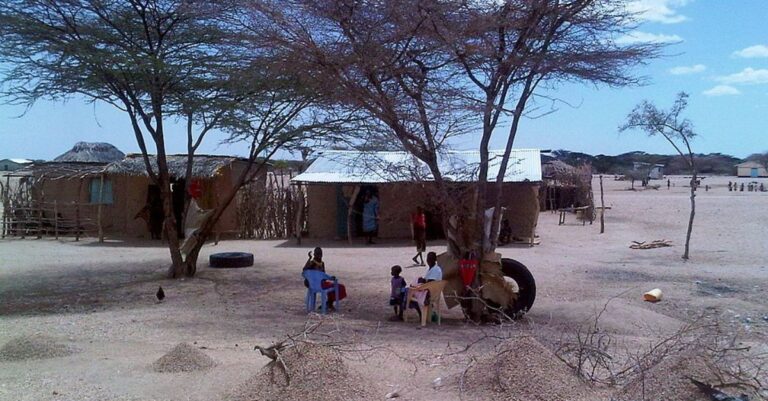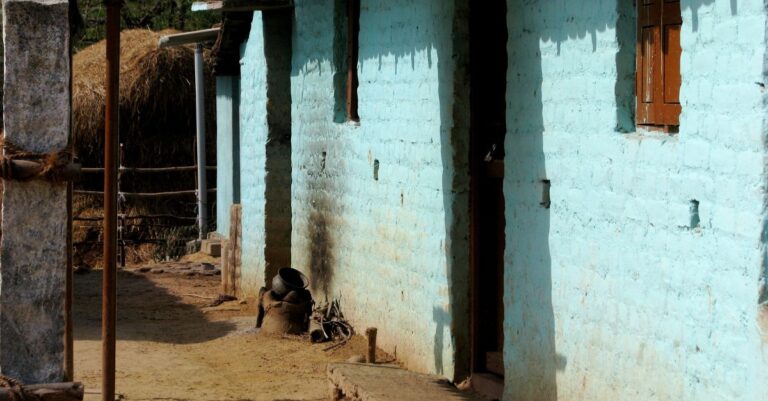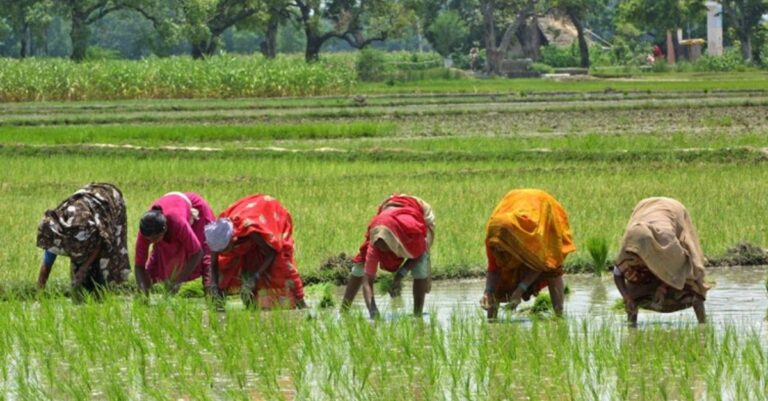By Md Tabrez Alam
In cities across India, Muslims face systemic barriers when attempting to rent or buy residential space, not limited to private landlords; it permeates housing societies and real estate markets, often justified under the guise of maintaining social harmony. However, this so-called harmony is nothing more than a façade for prejudice.
Residential segregation and discrimination against Muslims in India have become increasingly visible in recent years. Over fifty instances have been reported recently in various media outlets, highlighting the growing trend of denying Muslims housing opportunities based solely on their religious identity. This form of discrimination has been exacerbated by the controversial and politically charged term ‘Land Jihad,’ propagated by some right-wing groups. The term, which falsely suggests that Muslims are strategically buying land in predominantly Hindu areas to alter the demographic balance or illegally occupying state land, has led to increased suspicion and prejudice against the Muslim community, further fuelling residential segregation.
This article investigates the persistent issue of residential segregation and discrimination in urban India, focusing on the challenges faced by minority communities, particularly Muslims, in accessing housing. Through the lens of recent incidents in Gujarat, including the Motnath Residency Cooperative Housing Society case and the implications of the Gujarat Disturbed Areas Act, this study explores how institutionalized discrimination and social prejudices manifest in housing markets. The article aims to shed light on the broader socio-political dynamics that perpetuate segregation and marginalization, offering insights into the impact on affected communities and the crucial need for fostering inclusive urban development.
Introduction
Numerous studies and research papers have documented the extent of housing discrimination faced by Muslims in India. These studies highlight how the Muslim identity is used as a basis for exclusion from the housing and rental markets. The result is the creation of ghettos, where Muslims are forced to live in underdeveloped areas with inadequate access to basic amenities such as water, drainage, electricity, education, healthcare, and transportation. Having condemned Muslims to this secluded existence, they are taunted that they prefer to live in dirty ghettos.
The lack of infrastructure in “Muslim” residential areas not only perpetuates a cycle of poverty and exclusion but also has a significant impact on the mental health of the affected communities. Urbanization in India has brought about significant changes in housing markets, yet for many minority communities, accessing adequate housing remains a challenge. This article delves into recent cases in Gujarat to illustrate how entrenched social prejudices and institutionalized discrimination perpetuate residential segregation, particularly affecting Muslims.
Tracing the pieces of evidence
Recent years have witnessed a disturbing trend of housing discrimination and social exclusion in India, with multiple instances of spatial segregation based on Muslim identity. This urgent issue requires immediate attention. The following paragraphs provide an analysis of notable cases and reports highlighting the rise of residential segregation in India. In Mumbai, neighbourhoods such as Mumbra and Ambujwadi are prime examples of severe segregation. Mumbra has a large concentration of Muslims, many of whom face difficulties obtaining loans or securing jobs due to their address. Ambujwadi, populated mainly by marginalized communities, lacks basic amenities such as clean water and sewage systems. This spatial segregation isolates these communities and perpetuates a cycle of poverty and marginalization, as access to essential services and economic opportunities remain limited (The World from PRX), (SpringerLink).
Aurangabad presents a stark example of a religiously-divided urban space. The city is distinctly divided into areas like ‘Harri Patti Melaka’ for Muslims and ‘Bhagwa Patti Melaka’ for Hindus. The 1988 riots and subsequent events have entrenched these divisions. Muslim residents often face significant challenges in accessing housing in areas supported by dominant political parties such as the Shiv Sena. This segregation is both a result of and a contributing factor to ongoing communal tensions and socioeconomic disparities (India Housing Report).
In Ahmedabad, the neighbourhood of Juhapura stands as one of the largest Muslim ghettos in India, formed as a result of segregation following communal violence. Juhapura is marked by poor infrastructure and limited access to public services, reflecting a broader pattern of urban segregation impacting Muslims across various Indian cities. This exclusion has resulted in densely populated areas with inadequate living conditions, further marginalizing the Muslim community (India Housing Report).
Delhi exhibits significant residential segregation, particularly in areas like Jamia Nagar. Here, Muslims have clustered together due to safety concerns and pervasive discrimination in the housing market. This clustering has led to underdeveloped neighbourhoods with inadequate public services compared to other parts of the city. The segregation is further perpetuated by landlords and real estate agents steering Muslim clients towards these specific neighbourhoods, limiting their housing options and reinforcing communal divides (India Housing Report). These instances underscore the persistent issue of residential segregation faced by Muslims in India, exacerbated by both societal discrimination and infrastructural neglect. This pattern of segregation not only isolates Muslim communities but also hampers their access to equitable housing opportunities and integrated social settings (OHCHR) (India Housing Report).
An ongoing challenge
Documented instances of housing and land market discrimination from 2016 onwards highlight the ongoing challenges faced by Muslims in India. For instance, a 2016 study by UNU-WIDER revealed significant discrimination against Muslims in Delhi’s rental housing market, with Muslim applicants having a significantly lower probability of receiving callbacks from landlords compared to upper-caste Hindus (UNU-WIDER). In 2019, reports indicated widespread difficulty for Muslims in finding rental housing in major cities like Delhi and Mumbai, as many landlords openly refused Muslim tenants, forcing them to live in segregated neighbourhoods (Article 14).
During the COVID-19 pandemic in 2020, there were instances where Muslim communities faced increased stigmatization and difficulty in securing housing due to unfounded accusations of spreading the virus(DW). In April 2022, Amnesty International reported on “bulldozer justice,” where homes, businesses, and places of worship of Muslims were unlawfully demolished by authorities in various states, including Delhi and Uttar Pradesh. These demolitions targeted Muslim properties without due legal process, resulting in the forced eviction of hundreds of Muslims (The Independent).
By October 2022, reports highlighted ongoing issues with Muslims being excluded from rental markets in large cities, with many Muslims being turned away by landlords based solely on their religious identity (DW). This trend continued into 2023, with numerous instances reported where Muslims were denied housing due to their religious identity. Landlords in urban areas such as Delhi and Mumbai continued to prefer tenants from specific religious backgrounds, further entrenching housing segregation (Article 14) (Hindustan Times).
Recent instances where Muslims in India have been denied housing or land purchases due to their religious identity further illustrate the depth of this issue. In 2023, many Muslims in Delhi and Mumbai faced difficulties finding rental housing, with areas like Hauz Rani and Jamia Nagar being labelled as “Muslim zones,” forcing Muslims to live in segregated neighbourhoods to find housing more easily (The World from PRX) (SpringerLink). In a widely reported instance, a broker in Mumbai refused to rent a house to a Muslim woman, highlighting ongoing landlord reluctance to rent to Muslims and forcing them to agree to discriminatory terms or hide their religious identity to secure housing (The World from PRX).
In August 2023, during communal violence in Nuh, Haryana, several Muslim homes and shops were bulldozed, exacerbating housing insecurity for Muslims (SpringerLink). Following attacks on a mosque and Muslim businesses in Gurugram, a Delhi suburb, many Muslims reported feeling unsafe and faced increased challenges in finding new housing (The World from PRX).
In Delhi, the real estate market continues to discriminate against Muslims, with brokers and landlords often steering Muslim clients towards specific neighbourhoods with high Muslim populations, perpetuating segregation and limiting housing options for Muslims outside these areas (The World from PRX). These cases illustrate the ongoing issue of housing discrimination against Muslims in India, driven by religious prejudice and resulting in segregated living conditions and a sense of insecurity among Muslim communities. The rise in residential segregation reflects a troubling trend that requires urgent attention and action. The government and law enforcement must proactively address housing discrimination and ensure equitable housing opportunities for all (OHCHR) (India Housing Report).
Why It Is a Concern for India
Residential segregation based on religious identity, particularly against Muslims, has become an alarming issue in India. Over 50 documented cases have recently emerged in the media, showing how Muslims are being denied rental properties or the chance to purchase homes solely based on their identity. This form of discrimination, once disguised behind excuses such as concerns over hygiene, family size, or dietary habits, has become increasingly blatant. Statements like “we do not rent to Mohammedans” are now more common, often justified by the contentious term “Land Jihad.” It is a term propagated by some right-wing groups in India, alleging that Muslims strategically buy land and properties in predominantly Hindu areas to alter the demographic balance or that they illegally occupy public land. This unfounded and politically charged notion deepens communal divides and stokes unwarranted fears.
These misconceptions and discriminatory practices are undermining India’s iconic ethos of “Unity in Diversity.” They erode intercommunity trust and amplify discrimination against Muslims in housing, rental, and land markets.
Research and studies have shown that Muslim identity is frequently used as a basis for exclusion, compelling many to live in ghettos. These segregated areas often lack essential facilities such as water, drainage, electricity, education, healthcare, and transport infrastructure. The residents, including children, suffer from inadequate access to playgrounds and other necessary services, leading to a significantly lower quality of life. The increasing visibility of such discrimination in the media and public discourse highlights the urgent need for legal reforms and societal change. India’s foundational values of equality and inclusivity must be upheld to ensure that all citizens, regardless of their religious identity, have equal access to housing and other fundamental rights. Through such efforts, the country can hope to mend the growing rift and preserve its cherished unity in diversity.
The Extent of the Problem
In cities across India, numerous Muslims face systemic barriers when attempting to rent or buy residential space. This discrimination is not limited to private landlords; it permeates housing societies and real estate markets, often justified under the guise of maintaining social harmony. However, this so-called harmony is nothing more than a façade for prejudice. The term “Land Jihad” has been instrumentalized to fuel communal paranoia. It is used to suggest that Muslims aim to dominate neighbourhoods by purchasing properties, thus threatening the cultural and demographic fabric of Hindu-majority areas. This rhetoric is not only baseless but also dangerous, as it legitimizes exclusionary practices and heightens communal tensions.
Impact on Social Fabric
The segregation of communities along religious lines harms social cohesion. It fosters environments where prejudices and stereotypes thrive unchallenged, further alienating marginalized groups. When Muslims are forced into ghettos, they are cut off from mainstream opportunities, perpetuating cycles of poverty and social exclusion. In these ghettos, basic amenities and services are often lacking. The residents, including children, face numerous hardships, from poor educational facilities to inadequate healthcare and sanitation. This affects their immediate well-being and hinders their long-term prospects, creating entrenched disparities.
Media and Public Perception
The media has played a significant role in bringing these issues to light. Print media, online platforms, and mainstream news channels have repeatedly reported on incidents where Muslims are refused housing or rentals. These stories reveal a troubling pattern of institutionalized discrimination, where Muslim applicants are systematically excluded from certain residential areas.
The Case of Motnath
Residents of the Motnath Residency Cooperative Housing Society in Vadodra, Gujarat, are currently protesting against the housing allotment granted to a Muslim woman. Despite her being a government employee and legally entitled to the government-funded property under the Mukhyamantri Awas Yojana, residents argue that the complex is a Hindu-dominated area. This incident highlights the broader issue of religious discrimination in housing.
Background: In 2017, a 44-year-old Muslim woman working for the Ministry of Entrepreneurship and Skill Development was allotted a house in the Harni district under Vadodara Municipal Corporation’s (VMC) low-income housing complex. Before she could move in, 33 residents petitioned the District Collector to invalidate her allotment, citing concerns about maintaining the Hindu-dominated nature of the area. Despite legal entitlement, the woman faces ongoing opposition. Residents have written to various authorities, including the Chief Minister’s office, to revoke her allotment. Her ordeal underscores the social resistance to minority integration in certain urban areas.
Gujarat High Court refused to take suo motu cognizance of the protests against the allotment of a flat to the Muslim woman. It ruled that this issue does not qualify as a public interest matter, suggesting that the allottee could file her petition if her rights were violated. This decision underscored the challenges minorities face in seeking justice through the legal system. On the other hand, Vadodara Collector BM Shah clarified that the Disturbed Areas Act does not apply to government housing schemes like the Mukhyamantri Awas Yojana, invalidating the residents’ complaints. Despite this, the reluctance of authorities to intervene highlights a significant gap in addressing institutionalized discrimination. This incident, reported by The Indian Express, reveals how social prejudices continue to obstruct fair housing access and emphasizes the need for more robust legal protections and proactive measures to ensure the rights of minority communities are upheld.
The Gujarat Disturbed Areas Act
The Gujarat Prohibition of Transfer of Immovable Property and Provision for Protection of Tenants from Eviction from Premises in Disturbed Areas Act, commonly known as the Disturbed Areas Act, plays a significant role in regulating property transactions between different religious communities. A recent legal battle over a property sale in Vadodara’s Tandalja neighbourhood highlights the contentious nature of this law. Despite the Gujarat High Court upholding the sale, the case illustrates the legal and social hurdles minorities face in the housing market.
Residential segregation leads to the ghettoization of minority communities, exacerbating social and economic marginalization. The concentration of Muslims in specific areas, such as in some Bokaro areas, results in limited access to resources and opportunities, reinforcing a cycle of poverty and exclusion. In neighbourhoods like Vadodara’s Tandalja, Muslims and Hindus coexist but lead parallel lives, indicating deep-seated social divisions. The enforcement of the Disturbed Areas Act often reflects and reinforces these divisions, making inter-religious property transactions difficult.
In August 2019, approximately 180 residents of Sardar Kunj, a residential society in the Shahpur neighbourhood of Ahmedabad, struggled to sell their homes due to the Gujarat Disturbed Areas Act. Initially intended to prevent distress sales in violence-prone areas, this law requires district collector approval for property transfers in designated “disturbed areas.” Shahpur, despite not experiencing communal violence since 2002, remains classified as disturbed, complicating property transactions. Residents report that the Act has been weaponized to discourage sales to Muslims, fostering religious segregation. The recent amendment to the Act, empowering the state to further interfere in property deals, has exacerbated these issues. Gujarat’s right-wing leaders, including Chief Minister Vijay Rupani, have openly endorsed religious segregation, arguing it prevents riots. Critics argue that the Act violates constitutional rights and perpetuates communal divisions, calling for legal reforms to address these discriminatory practices and promote inclusive urban development.
Legal and Policy Interventions
In conclusion, the rising trend of residential segregation and discrimination against Muslims in India is a severe issue that threatens the nation’s unity and social harmony. By acknowledging and addressing these issues through legal, social and educational means, India can strive towards upholding its foundational values of diversity and inclusion.
Addressing residential segregation requires robust legal and policy interventions. Laws that prevent discrimination in housing need to be enforced rigorously. Additionally, awareness campaigns are essential to educate the public about the harmful effects of segregation and the importance of inclusive practices. Governments at all levels must take proactive steps to dismantle ghettos and integrate housing projects. Ensuring equitable access to amenities and services for all communities is crucial. Urban planning should prioritize mixed-income and mixed-community housing projects to foster inclusivity.
Policy Recommendations for Addressing Residential Segregation
Addressing this issue requires a multifaceted approach. Legal reforms are necessary to ensure equal access to housing and to combat discriminatory practices in the real estate market. Public awareness campaigns can help challenge and change the prejudiced narratives that contribute to segregation. Promoting dialogue and understanding between communities is essential to rebuild trust and foster a more inclusive society. To tackle the pervasive issue of residential segregation in India, several key policy reforms and community initiatives are necessary. Firstly, repealing discriminatory laws such as the Disturbed Areas Act is crucial to facilitating fair and inclusive housing markets. These reforms will ensure that all citizens, regardless of their religious identity, have equal access to housing opportunities.
Promoting dialogue and interaction between religious communities can also help break social barriers and foster mutual understanding. Providing legal support to minority communities facing discrimination in housing is also essential to ensure their rights are upheld. Furthermore, increasing public awareness about the negative impacts of residential segregation and the importance of inclusive urban development can drive societal change. By addressing these issues comprehensively, India can move towards more equitable and inclusive urban environments, ensuring all citizens have access to fair housing opportunities.
Here is a list of references for the information used in the article:
- https://southasiajournal.net/india-an-epistemological-trace-of-muslims-segregation-in-jharkhand-finding-path-toward-inclusion/
- https://www.wider.unu.edu/publication/whom-does-phone-not-ring
- https://www.article-14.com/post/bigotry-at-home-how-delhi-mumbai-keep-muslim-tenants-out
- https://indianexpress.com/article/cities/ahmedabad/gujarat-protests-against-muslim-woman-getting-flat-under-cm-housing-scheme-9392561/
- https://www.dw.com/en/india-muslims-complain-of-rampant-housing-discrimination/video-63332558
- https://www.news18.com/news/buzz/i-know-i-am-muslim-as-others-dont-let-me-forget-when-house-hunting-in-indian-metros-turns-into-nightmare-1937325.html
- https://www.livemint.com/news/marathis-quota-50pc-residential-buildings-uddhav-sena-proposes-bill-over-discrimination-jail-term-11719285105591.html
- https://caravanmagazine.in/policy/the-gujarat-state-is-enforcing-communal-segregation-and-criminalising-property-transfers
- https://www.independent.co.uk/asia/india/india-muslim-houses-demolition-jcb-amnesty-report-b2492073.html
- https://www.hindustantimes.com/india-news/no-muslims-no-single-women-housing-bias-turning-indian-cities-into-ghettos/story-ZC9QyX93C9dIBbpz9BXSdL.html
- https://theleaflet.in/is-unity-in-diversity-a-farce-when-it-comes-to-housing-in-india/
- https://link.springer.com/chapter/10.1007/978-981-16-6917-0_7
- https://frontline.thehindu.com/the-nation/discrimination-in-housing/article8745826.ece
- https://journals.sagepub.com/doi/full/10.1177/23944811231169194
The author recently earned his PhD from IIDS, New Delhi. His academic journey includes an MPhil from MANUU and a Master in Social Work from the Central University of Rajasthan. Graduating initially in Social Work from Osmania University, Alam is pivotal in social initiatives as the General Secretary of Rising Tree and co-founder of Social Works Collectives. His book, Muslim as Unequal: A Socioeconomic Study of Jharkhand, and multiple research papers highlight his contributions. His research interests include Social Work interventions, Social Policy, Identity-based discrimination, and Social Development. He may be contacted at ktabrezshams$gmail#com. He tweets @ktabrezshams
(First published on The Milli Gazette)




